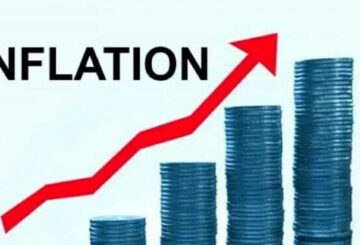
ROYAL Dutch Shell has recorded a drop of $7.5 billion in its income. The oil giant’s 2019 yearly report showed that its income in 2019 was $16.4 billion, down from $23.9 billion in 2018.
Also the company’s earnings on a current cost of supplies (CCS) were $15.8 billion, down from $24.4 billion in 2018.
Overall, though, Shell’s financial foundations remained strong, said its Chief Executive Officer, Ben Van Beurden, adding that the company continued to show financial discipline by limiting its cash capital expenditure to $24 billion, at the lower end of the range that it said it would spend.
He said: “We improved the resilience and quality of our portfolio by making around $5 billion worth of divestments. We made progress in the face of economic headwinds such as low oil and gas prices, limited global growth, and reduced chemical and refining margins.
“Our cash flow from operating activities was strong compared to our industry peers, at $42.2 billion. We distributed more than $25 billion to shareholders: $15.2 billion in dividends, and $10.2 billion in share buybacks. By the end of January 2020, we had delivered $14.75 billion of our $25 billion buyback programme, which began in 2018. The headwinds did contribute to some negative factors in our financial performance.”
He stated that Shell’s strategy is anchored on three clear ambitions – to thrive in the energy transition, provide a world-class investment case, and sustain a strong societal licence to operate.
In 2019, to help achieve all three ambitions, we refreshed our strategy to focus more strongly on developing our Power business. If the world is to tackle climate change, it must consume more of its energy in the form of electricity. This is a huge potential growth opportunity for Shell; one, we are well-positioned to seize, he added.
Shell, he noted, has the brand, the global presence, the retail and marketing expertise that you need when buying and selling electricity and interacting with customers.
“We are a worldwide supplier of natural gas, a cleaner alternative to coal for electricity generation. We are actively seeking to increase our investments in renewable power. In 2019, for example, Shell acquired ERM Power, one of Australia’s leading commercial and industrial electricity retailers. We continued to work towards delivering on our Net Carbon Footprint ambition to cut the intensity of the greenhouse gas emissions of the energy products we sell by around 50 per cent by 2050, and as an interim step by 20 per cent by 2035. As part of this ambition, we launched a worldwide programme that uses trees and other plants to remove carbon dioxide from the atmosphere.


